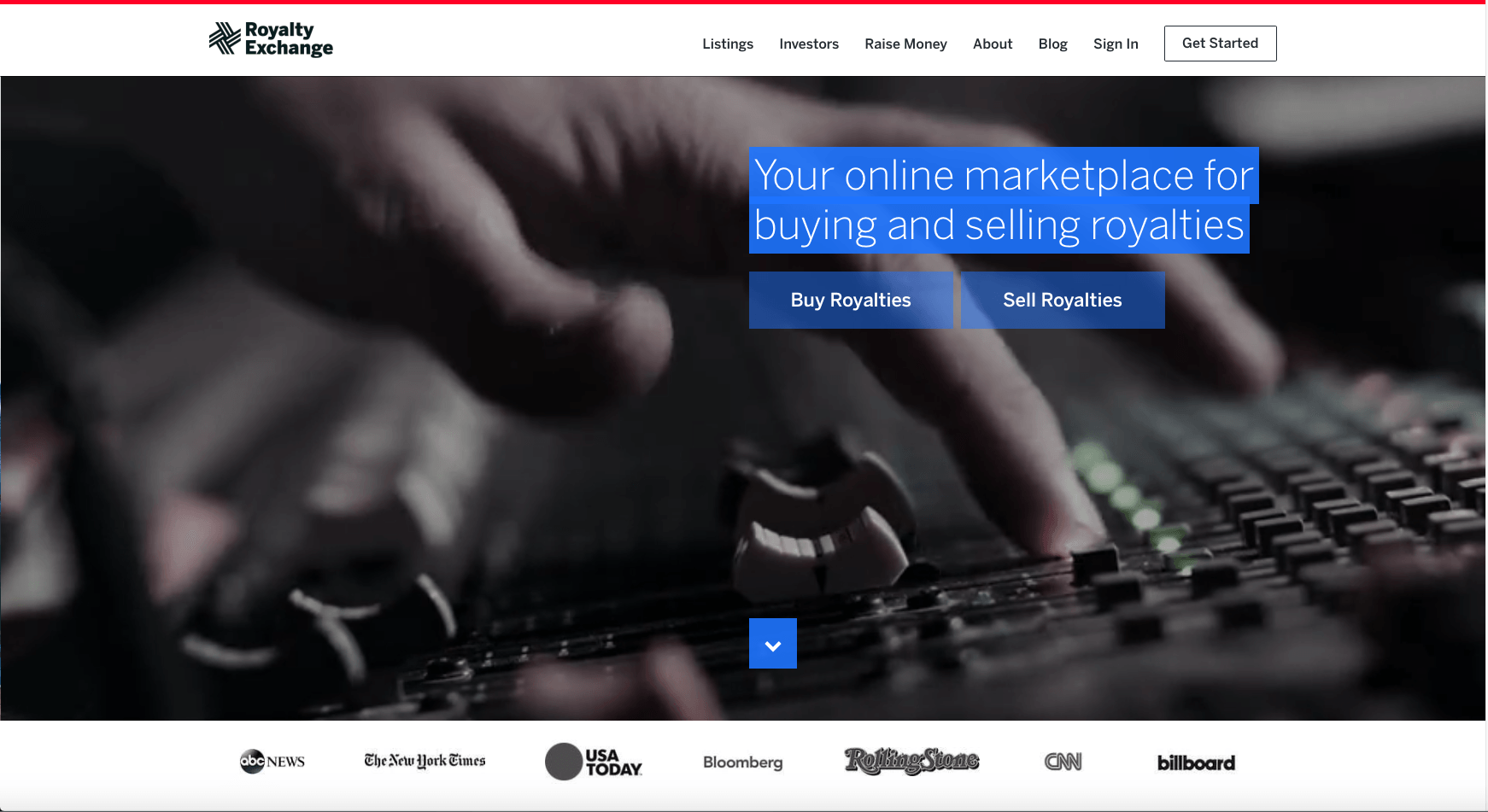The major acquisitions in the music royalty space always receive the lion’s share of headlines and media attention, and why shouldn’t they? The industry isn’t the most exciting field to keep an eye on (especially when compared to the artists who power it), so whenever a news item pops up with tens of millions of dollars included in a deal, it’s worth publishing.
What doesn’t get written about enough are the smaller companies with great ideas and a lot of potential, who might not have $50 million to spend on one superstar’s catalog. Those firms are still the ones pushing the business side of music ever forward, and they deserve some attention, even if there aren’t any chart-toppers or life-changing paydays involved.
Here’s a look at 8 companies changing the game and making a name for themselves by working with royalties that you should get to know.
Royalty Exchange
Any article looking at the current state (and the future) of the royalties biz and how that part of the music industry is changing rapidly needs to prominently feature Royalty Exchange, and that is why it is listed first. Synchblog has already shared a lot about the organization, but it’s worth including here as well, as it is pioneering some ideas that will change the game.
Royalty Exchange is a website where auctions are held, and what’s being bid on are the rights to future royalties. Anyone with the financial resources can bid on a fraction of future royalties that a piece of music will earn, and they can watch the numbers go up throughout the process. This open activity is in stark contrast to how things have been done in the past, where every deal was conducted behind closed doors, and almost only ever with others in the music industry. Keeping things in the business is nice enough, but by opening up auctions to any person or company, royalties often sell for higher sums of money, which only benefits those who own the copyrights, which are often the songwriters, producers, or musicians themselves.
In addition to being a great idea that somehow has only just arrived in the past few years in the music industry (it should have been created a long time ago), Royalty Exchange’s platform is incredibly transparent, which is something that has been direly needed in this sector. Investors can see how well a song has been performing in terms of bringing in cash, which helps them determine how much should be offered. Fellow musicians who may be thinking of jumping into this process can see what other tracks have gone for, which not only allows them to set a fair base price when they auction off the rights to some of their tunes, but also gives them insight and helps them understand how their music is valued. If only one company is telling you what your intellectual property is worth, there’s a chance they’re quoting you a price that’s actually too low, as it might be in their best interest. When everything’s out in the open, there is nowhere for the truth to hide
Royalty Flow
While the website facilitates transactions between companies and artists and those who want to invest in the future earning potential of music, Royalty Exchange doesn’t actually buy anything. It might help others snap up rights, but that isn’t the purpose of the platform itself, and that’s why those in charge founded its subsidiary, Royalty Flow.
The offshoot company actually does acquire catalogs and holds onto them, and those in charge were clearly very proud when they announced that a large portion of Eminem’s back catalog was the first purchase. Investors will be able to put their money on songs owned by Royalty Flow based on how well or how poorly they are performing from day to day, which is essentially exactly how a stock market works.
Think of it like this: Royalty Exchange is like the stock market, and Royalty Flow is like the stock market…if the stock market also owned everything being traded and bet on.

Lyric Financial
Nashville-based Lyric Financial has a different way of looking at things, and it doesn’t require selling anything. Owning the rights to the music you’ve created is one of the greatest things a musician can do, and if you do decide to sell, it should be on great terms and because you want to, not because you have to in order to simply survive. Having said that, making it work as an artist is incredibly difficult, and sometimes between sales, streams, moving merchandise, and playing as many live gigs as is possible, the cents just don’t add up, and something has to be done.
Lyric Financial offers, essentially, payday loans for musicians who need cash quickly. The company doesn’t phrase its operations as such (because that wording comes with a somewhat deserved negative connotation), but that’s what the model sounds exactly like it takes after, only things here might be tailored a bit more, and it’s all much smarter than the average payday loan shop.
One of Lyric Financial’s products allows “artists, songwriters, indie labels and publishers to view their projected earnings and request a cash advance on their royalties or sales,” which is simple enough, though of course, the fine print should always be read and the terms of each deal need to be considered carefully.
Because most people who opt to go this route need money fast, Lyric Financial has the upper hand, and the company probably does well with each transaction. That’s just how business works, but at least at the end of working with the financial firm, a musician hasn’t given away anything forever!
Stay tuned for part 2 where we look at 5 more companies innovating the music royalties market.

